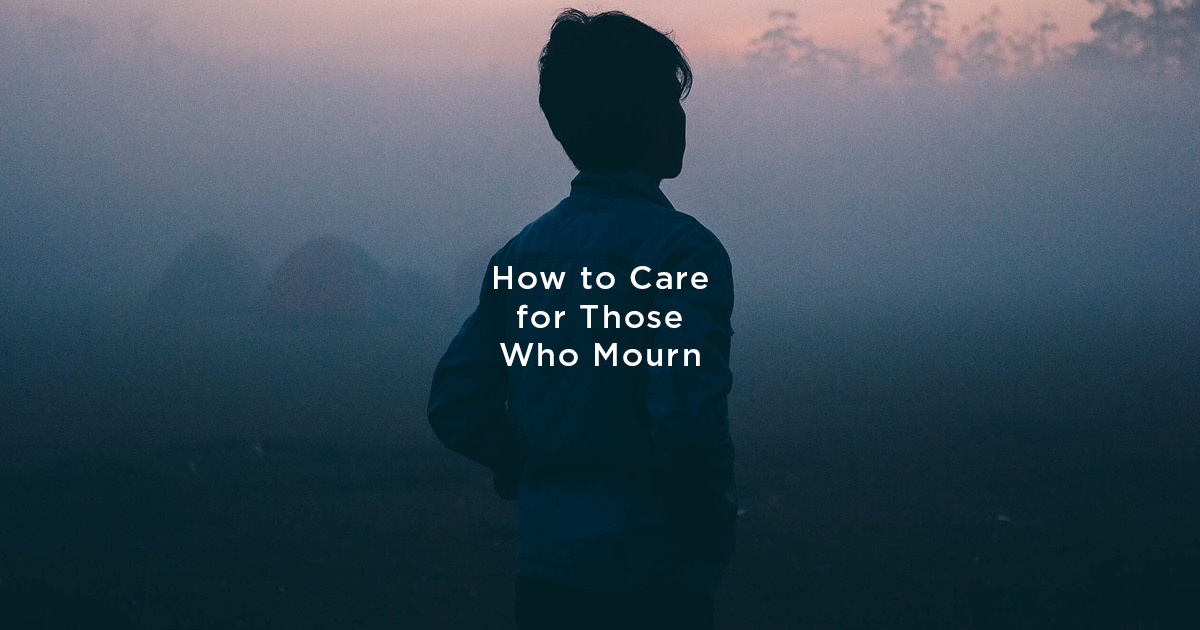
I once took a frustrated walk along main street in my small town, and audibly told Jesus that I was out. That I was going to abandon my faith because nothing was offering any relief. I lost a job and a friend and a sense of belonging and calling, and it was winter in New England which really does not help the vibe. Things were dark for months and months and it was wearing on my tired frame. I was isolated and hurting and as a single woman, I didn’t have a partner in my corner to help carry the load. I remember my pastor calling me to check in, and when he asked how I was I said, “Oh, I’m just feeling hopeless and overwhelmed and like I really don’t bring anything to the world.” He was shocked by my honesty, I’m sure.
In those hard days, I knew I needed people to remind me of truth because Scripture reminds us in Hebrews that we’re called to encourage one another. My pastor did that day; others would follow suit. When I went on the walk with Jesus declaring my absolute anger and perceived betrayal, something nudged me to call my friends Anna and Audrey. Miraculously, they didn’t try to fix me or preach inspiration—they gently reminded me of what was true and told me I wasn’t alone.
When we’re facing the overwhelming nature of grief, we don’t need someone to show up and try to solve all our problems. (In fact, doing that takes the place of God if we’re not careful.) In our questioning, we need companionship more than answers at times. And I have found that comfort is found when we love one another intentionally and in a way that doesn’t complicate things.
Here’s what I mean: if you’re an introvert, you don’t want to have a bunch of people showing up to help you out. And if you’re single, you don’t need eleven pounds of lasagna. Sometimes the well-meaning greet the bereaved with what they think is helpful and it’s really…not. Meeting people right where they are is not only considerate—it’s actually something that ministers by saying, “I see you and it’s not about me.”
Scripture tells us that we belong to one another (Romans 12:5) and also that we are all different (Ephesians 4). While we all need to the truth of the Gospel, we may receive care differently. What’s helpful to you might not be for someone else.
But don’t let that make you overthink reaching out to a friend in need. In fact, it gives us the freedom to show up in the moments—even the small ones—to act as a beacon pointing them back to the truest source of life and strength. Still, I like to be wildly practical, so here are a few ways to minister to a friend who is in a season of struggle:
The Extrovert: This person needs community. Offer to take them to dinner—or bring a meal and ask them if they want you to drop it off or stay to visit. Depending on where they’re at in their processing, they might want a listening ear.
The Introvert: This person wants to know they’re supported, but may not want to be bombarded with company. Offer to take something off their plate to give them a little space. Perhaps taking their kids to ice cream or having dinner delivered will give a bit of breathing room.
The Parent: Text and see if you can show up after like, 8:30pm with a favorite snack or even just hang out with the sleeping kids so they can go have some alone-time. Even an hour of support can give a much-needed break.
The Single pal: This is me and I can say that we often need someone to help us out in small ways. Offering to do yard work or install an AC unit or asking if anything needs to be done in practical ways is always a win. Also, be willing to come and be a companion in sorrow and a sounding board because more than likely they don’t have someone in their home they can process with.
The New Friend: Just because you don’t know someone well doesn’t mean that you can’t encourage them. Ask their love language or what is practically helpful and act accordingly—offer your presence or even just say, “What would take a load off your shoulders right now?”
Finally, and most importantly, be a prayerful encourager to them. Ask how you can pray and be specific. If you ask them for general prayer, they may not even know where to start. Try asking, “How can I be praying for you this afternoon?” Or “Has anything been taking up a lot of your brain space that you need prayer for?”
It’s easy to offer prayer and then forget to pray, so be sure to be faithful in this practice if you’re going to open your mouth and offer it. One of the best gifts to a grieving friend is consistency. Remember important dates (like anniversaries and birthdays) and reach out to them. Check in and keep praying beyond just the initial few weeks. These intentional acts of friendship can be game-changers to those who feel like outsiders because of their aching. You cannot be their everything in the deepest grief, but you can point them to the One who can.